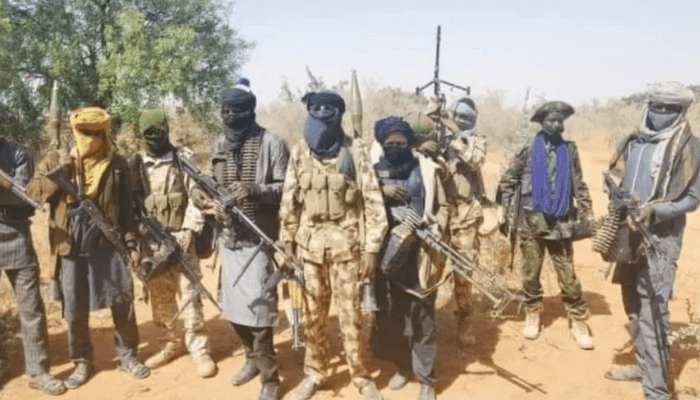Security experts and stakeholders have cautioned that Lakurawa bandits pose a threat in the Sahel Region which requires collective Efforts to End the Menace.
According to them, available research has shown that originally, the Lakurawa were vigilantes who rose up to fight against the injustices they perceived were being perpetrated against the Fulani and Buzaye, who were known for their wealth in livestock that grazed in the forests before they later degenerated into terrorists.
Raising from the major conference organized by the Center for Peace Studies at Usmanu Danfodiyo University in Sokoto of experts and stakeholders from within and outside Nigeria to shed light on the Lakurawa and their activities.
The Lakurawa, also known as Lakura-Fulbe in Fulfulde, or La Kura in Arabic, are a group of people from various countries in the Sahel region, including Niger, Mali, Burkina Faso, and others.
While the governments of Nigeria and other Sahel region countries are facing challenges in combating the Lakurawa terrorists, experts believe that understanding the root causes and international cooperation is crucial to winning this war.
According to Labaran Bello Tangaza, a researcher at the West African Peace Building Institute, the Lakurawa group was formed to protect the Fulani and Buzaye communities from cattle rustlers. They were given arms to defend their livestock.
Research has shown that the Lakurawa gained popularity by claiming to adhere to Islamic principles, which earned them acceptance and allegiance from people, leading to intermarriage with local communities where they initially settled.
In essence, the Lakurawa’s initial goal was to protect their communities from injustice, but they eventually degenerated into terrorists.
Experts emphasize the need for governments and local communities to understand the root causes of the Lakurawa’s emergence and to cooperate internationally to combat this threat.
Dr. Murtala Ahmad Rufa’i, a security expert at Usmanu Danfodiyo University in Sokoto, emphasizes that the problem of insecurity in West Africa can only be addressed through a collective effort.
He stresses that countries like Nigeria, Niger, Mali, Benin, and Burkina Faso must work together to combat this issue.
According to experts, one of the major threats posed by these terrorist groups is their use of modern technology to carry out their activities.
For instance, they employ the use of drones to gather information and collaborate with bandits in the forests.
To achieve victory against these terrorists, experts believe that the public and governments must understand who the Lakurawa are and how they operate.
This understanding is crucial in addressing the security challenges faced by communities in the region.
The residents of these areas are living in fear of attacks, while the authorities claim to be doing their best to combat the situation, as evident in the efforts of the Nigerian military.
In essence, the key to tackling insecurity in West Africa lies in cooperation and understanding among governments, experts, and local communities.
By working together and sharing knowledge, they can develop effective strategies to combat terrorism and restore peace to the region.















